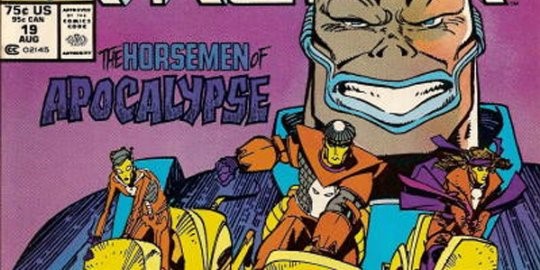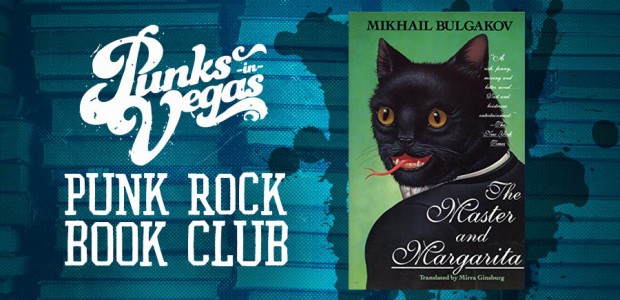Alright, let’s see a show of hands. How many of you read this book because of The Lawrence Arms?

Yeah, me too.
“The Master and Margarita” is the story of the Devil visiting the atheistic Soviet Union during the 1930s. Disguised as Professor Woland, a dark, mysterious stranger with a knack for black magic and a love for conversation, the Devil and his 5 companions, pastiches of the biblical horsemen, wreak havoc among the Soviet Union’s literary elite.

Okay, let me rephrase that. Woland’s concern is with mental manipulation, not physical harm, and he uses his gift for the spoken word to create doubt in the minds of atheistic characters. (Behemoth and Azazello on the other hand…)
This leads into a secondary plot that takes place in biblical Jerusalem and examines Pontius Pilate’s trial of Jesus Christ. This story is presented both as a conversation between Woland and Berlioz, the head of literary bureaucracy MASSOLIT who believes Jesus is a myth, and as a novel written by the titular Master, a novel that brings its author under the ire of the Soviet literary bureaucracy.
This book follows a large cast of interconnected of characters. You’ll spend a few pages with one person, get comfortable, only to have them dropped and replaced by someone else. In that way, it reminds me a lot of one of my favorite movies, P.T. Anderson’s “Magnolia.” And I’m not going to lie – keeping these characters straight the first time I read this was a bit headache-inducing.
Thank science for Wikipedia!
But you know what? Even as an atheist myself, I found this book to be brilliantly written. This is partially since, in the reality of the novel, these biblical characters are unequivocally real, so the story can also be read as taking satirical aim at people who toe the party line instead of thinking rationally.
Interestingly enough, though, “The Master and Margarita” was never published during Bulgakov’s lifetime.
See, this book was inspired by the culture of atheism in Soviet Russia, particularly among the country’s literary elite. As such, the Devil targets writers like Berlioz who deny Christ. Bulgakov clearly meant for this story to be a denouncement of this climate, but the society that led to the creation of this book would never allow such a book to be published.
The book was finally published in the late 60s, close to 30 years after Mikhail Bulgakov had passed away and stands the test of time as a standard bearer for great satire, and reminds us of the inherent corruptibility that too much power brings.
Stalin sure makes a confusing Uncle Ben stand in!
When it comes to this book, I believe Chris McCaughan of The Lawrence Arms said it best:
“’The Master and Margarita’ is just a phenomenal book that gets to the core of human/spiritual/ creative suffering.”
-Emily Matview






No Comments